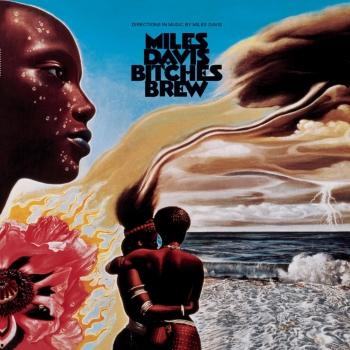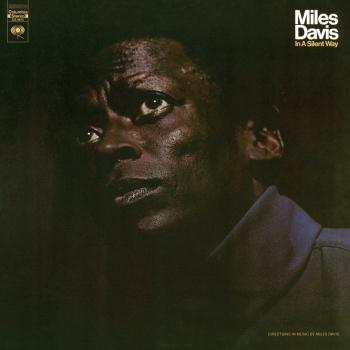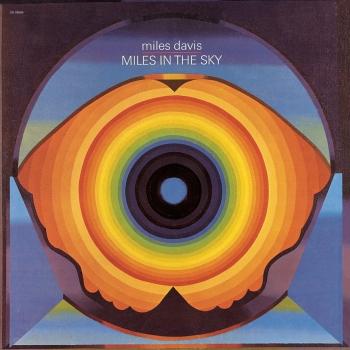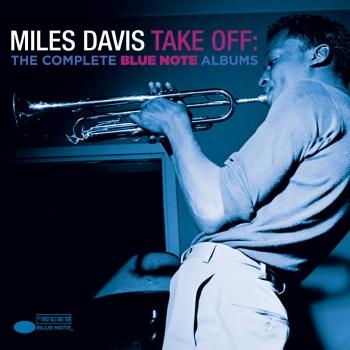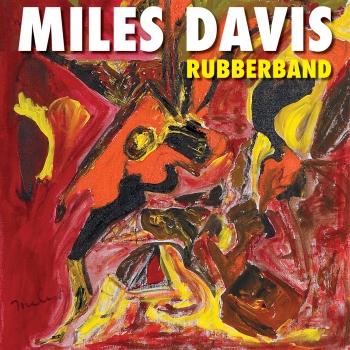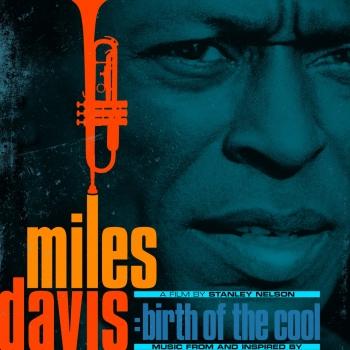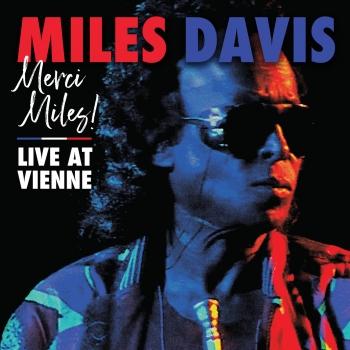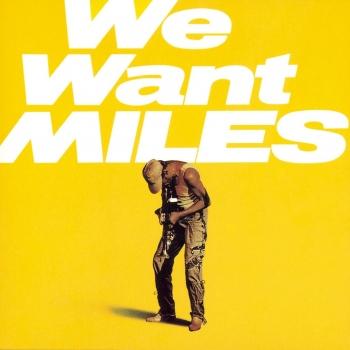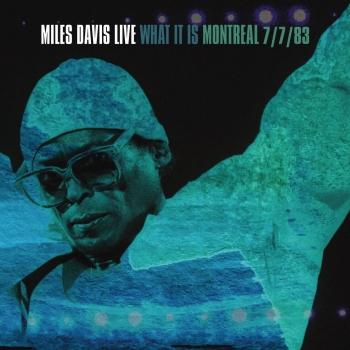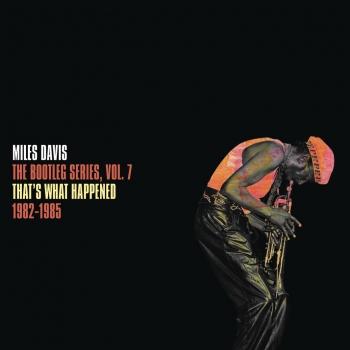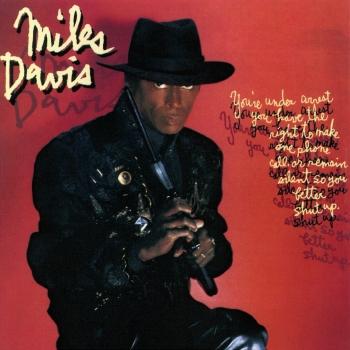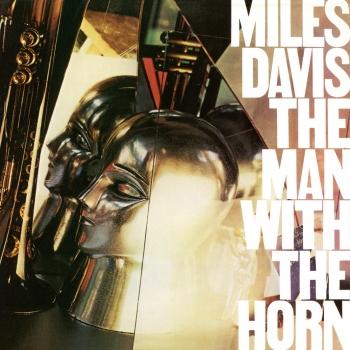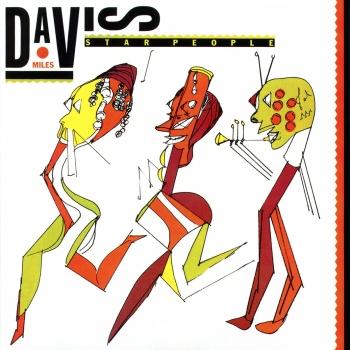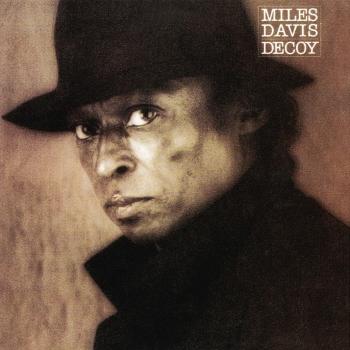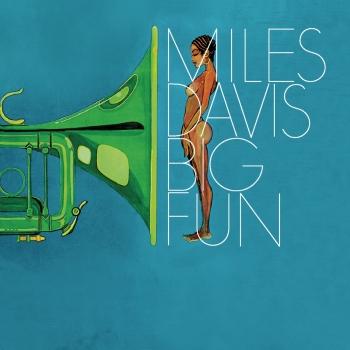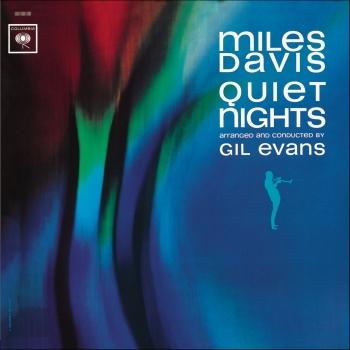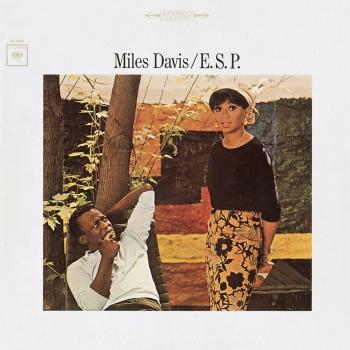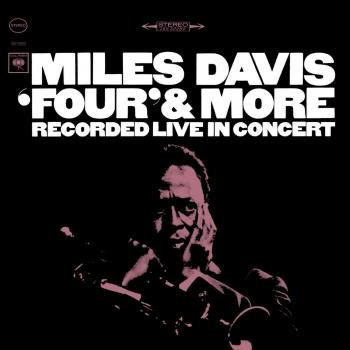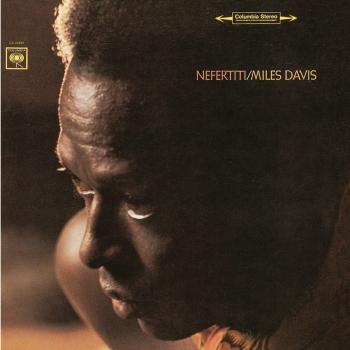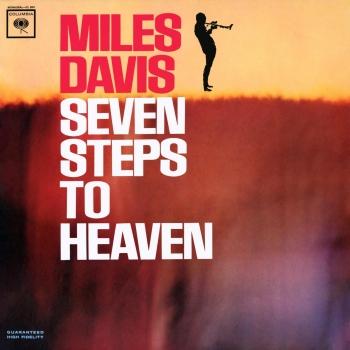
Big Fun (2022 Remaster) Miles Davis
Album Info
Album Veröffentlichung:
2000
HRA-Veröffentlichung:
23.09.2022
Das Album enthält Albumcover
Entschuldigen Sie bitte!
Sehr geehrter HIGHRESAUDIO Besucher,
leider kann das Album zurzeit aufgrund von Länder- und Lizenzbeschränkungen nicht gekauft werden oder uns liegt der offizielle Veröffentlichungstermin für Ihr Land noch nicht vor. Wir aktualisieren unsere Veröffentlichungstermine ein- bis zweimal die Woche. Bitte schauen Sie ab und zu mal wieder rein.
Wir empfehlen Ihnen das Album auf Ihre Merkliste zu setzen.
Wir bedanken uns für Ihr Verständnis und Ihre Geduld.
Ihr, HIGHRESAUDIO
- 1Great Expectations27:23
- 2Ife21:34
- 3Recollections18:49
- 4Trevere05:55
- 5Go Ahead John28:27
- 6Lonely Fire21:21
- 7The Little Blue Frog09:10
- 8Yaphet09:39
Info zu Big Fun (2022 Remaster)
Released in April 1974, Big Fun filled in a few of the gaps with tracks recorded between 1969 and 1972. Standout performances from November 1969, recorded on the heels of the Bitches Brew sessions, reveal how early Miles began to incorporate Indian instruments—sitar, tabla—into his music: “Great Expectations/Orange Lady,” “The Little Blue Frog” (Miles’s muted trumpet adding a delicate, retro touch), and the soulful and deeply lyrical “Yaphet” were wonderful rescues.
Recorded just a few months later at the start of 1970, “Recollections” and “Lonely Fire” are down-tempo, extended studies in shadowy feel and texture, atmospheric electric keyboards and restrained solos. “Go Ahead John” is a lengthy, hard-driving jam from the Jack Johnson sessions; John McLaughlin’s brash guitar up front and center. “Ife,” from the summer of 1972 and named for the daughter of percussionist Mtume, is an Afro-futurist mini-suite, flows with a rich, suite-like narrative of rhythm and space.
Big Fun is not a studio album by the great Miles Davis, but a compilation with themes taken from various recording sessions performed by different groups. It is not, therefore, a cohesive work that functions as a whole, but a collection of pieces that have in common the trumpeter's leadership and jazz-fusion-electric, but little else.
On the other hand, given that in this reissue the Columbia Records label added up to four bonus tracks (representing half of the album), from different recording sessions and only released, until then, in The Complete Bitches Brew Sessions, the sensation of being in front of a collage is accentuated. Nevertheless, like everything Miles Davis released, it is a recommendable edition for jazz lovers, especially for those who enjoy his electric phase in which he tried to fuse jazz and rock.
In fact, the opening track Big Fun, Great expectations, a composition by Davis and Joe Zawinul, was recorded two months after the session that resulted in the masterpiece Bitches Brew (Columbia Records, 1970), so it is almost a continuation. However, the tracks included here were recorded from 1969 to 1972, and some of the pieces were not released by Teo Macero, so it is an unfinished work, which only saw the light of day due to the company's interest in taking advantage of the trumpeter's commercial pull: Bitches Brew was one of the best-selling albums in the history of jazz.
Forgetting the bonus tracks, which don't contribute much (except for the remarkable Recollections, by Zawinul), Big Fun is an interesting edition that, among other things, has the incentive of allowing us to listen to Miles Davis' experiments with Indian instrumentation and sonorities. Already in the first cut, the long Great Expectations, recorded with a group of eleven musicians, the presence of an electric sitar and a tambura can be heard, incorporated into the usual atmospheres that he was developing at the end of the 60s. The result is as engaging and personal as ever, so it's a pity he didn't continue his approach to the Indian musical tradition.
Another moment of great interest comes with the first cut of the second disc, Go ahead John, the longest on the album and the only one recorded with a quintet, which includes fascinating passages. Big Fun is not one of Miles Davis' must-haves, but it is interesting to appreciate his evolution.
"Despite the presence of classic tracks like Joe Zawinul's "Great Expectations," Big Fun feels like the compendium of sources it is. These tracks are all outtakes from other sessions, most notably Bitches Brew, On the Corner, and others. The other element is that many of these tracks appeared in different versions elsewhere. These were second takes, or the unedited takes before producer Teo Macero and Miles were able to edit them, cut and paste their parts into other things, or whatever. That is not to say the album should be dismissed. Despite the numerous lineups and uneven flow of the tracks, there does remain some outstanding playing and composing here. Most notably is "Great Expectations" from 1969, which opens the album. Here the lineup is Miles, Steve Grossman, Bennie Maupin, John McLaughlin, Khalil Balakrishna, and Bihari Sharma on sitar and tambura, Herbie, Chick Corea, Ron Carter, Harvey Brooks, Billy Cobham, and Airto. Creating a series of vamps from drones and a small melodic figure, there is very little in the way of groove or melodic development until the middle section, where a series of modalities enters the composition. The second album in the set features "Go Ahead John," an outtake from Jack Johnson's sessions that is 28 minutes in length. It's a riff-based groover, with McLaughlin and his wah-wah pedal setting the pace with Steve Grossman on soprano. The basic motif is the blues, floating around E and Bb flat, but there are modulations introduced by Miles into Db flat that add a kinkier dimension into the proceedings as well. Dave Holland is the bass player, and DeJohnette is the drummer. There is no piano. What's most interesting about this date is how it prefigures what would become "Right Off" from Jack Johnson. It doesn't have the same fire, nor does it manage to sustain itself for the duration, but there are some truly wonderful sections in the piece. This is for Miles fans only, especially those of his electric period, because it fills in the puzzle. The reissue added four bonus tracks to the original double-LP set, but other than "Recollections" by Zawinul, they shed little light on the mystique and development of the intensely creative music being developed in 1969 and 1970. Others should be directed to Bitches Brew, In A Silent Way, Jack Johnson, or Live Evil as starting points." (Thom Jurek, AMG)
Miles Davis, trumpet (1,3-8), electric trumpet with wah wah (2)
Steve Grossman, soprano saxophone (1,4,5,7,8)
Sonny Fortune, soprano saxophone & flute (2)
Carlos Garnett, soprano saxophone (2)
Wayne Shorter, tenor saxophone (3,6)
Bennie Maupin, bass clarinet (1,3,4,6-8), clarinet & flute (2)
John McLaughlin, electric guitar (1,3,5,7,8)
Khalil Balakrishna, electric sitar (1,4,6-8), Indian instruments (6)
Herbie Hancock, electric piano (1,8)
Chick Corea, electric piano (1,3,4,6-8)
Lonnie Liston Smith, electric piano (2)
Harold I. Williams, Jr., electric piano (2)
Joe Zawinul, electric piano (3,6), Farfisa organ (6)
Larry Young, organ & celeste (4,7)
Ron Carter, double bass (1,8)
Harvey Brooks, Fender bass (1,4,6-8)
Michael Henderson, electric bass (2
Dave Holland, electric bass (3,5), double bass (4,6,7)
Billy Cobham, drums (1,4,6-8), triangle (3,8)
Al Foster, drums (2)
Billy Hart, drums (2)
Jack DeJohnette, drums (3-7)
Airto Moreira, percussion (1,3,6), cuica (3,4,7,8), berimbau (4,7,8), Indian instruments (6)
Badal Roy, tabla (2)
James Mtume, African percussion (2)
Bihari Sharima, tamboura (1,4,7,8), tabla (1,8)
Digitally remastered
Please Note: We offer this album in its native sampling rate of 96 kHz, 24-bit. The provided 192 kHz version was up-sampled and offers no audible value!
 Kaum ein anderer Musiker vermochte die Geschichte des Jazz derart nachhaltig zu beeinflussen, wie der am 26.05.1926 in Alton, Illinois geborene und in St. Louis aufgewachsene Miles Davis. Ohne den 'Prince of Darkness' wären die meisten Schlüsselentwicklungen des Jazz ab 1950 undenkbar gewesen. Mit unnachahmlicher Intonation und sparsamer melodischer Gestaltungskraft hat sich der Trompeter den Status einer Pop-Ikone erspielt.
Kaum ein anderer Musiker vermochte die Geschichte des Jazz derart nachhaltig zu beeinflussen, wie der am 26.05.1926 in Alton, Illinois geborene und in St. Louis aufgewachsene Miles Davis. Ohne den 'Prince of Darkness' wären die meisten Schlüsselentwicklungen des Jazz ab 1950 undenkbar gewesen. Mit unnachahmlicher Intonation und sparsamer melodischer Gestaltungskraft hat sich der Trompeter den Status einer Pop-Ikone erspielt.
Seine ersten wichtigen Gehversuche machte Miles in New York, wo er mit seinem musikalischen Vorbild Charlie Parker zusammentraf, in dessen Band er umgehend spielte. 1948 leitete der Trompeter bereits seine eigene Band, die mit Arrangements von Gil Evans zu den 'Birth Of The Cool'-Sessions führte. Neben seinen freelance Arbeiten gründete Miles Davis 1955 sein erstes Quintett bestehend aus Red Garland, Paul Chambers, Philly Joe Jones und John Coltrane. In den Jahren 1963-68 formierte er das zweite große Quintet, in welchem der junge Wayne Shorter am Saxophon brillierte (mit Herbie Hancock, Ron Carter und Tony Williams).
Die späten 60-er Jahre brachten unter Miles' Impuls die Wende hin zum Jazz Rock. Alben wie 'Bitches Brew' und 'We Want Miles' stehen paradigmatisch für diese Zeit. In der ersten Hälfte der 70-er Jahre veränderte der Ausnahmetrompeter häufig die Besetzungen seiner Band. In großzügig angelegten Gruppenimprovisationen integrierte er die vormals 'jazzfremden' Tablas, Sitar und diverse Percussioninstrumente. Den Sound seiner Trompete veränderte er mit dem Einsatz eines WahWah-Pedals. Die psychedelisch anmutende Musik dieser Zeit polarisierte das Publikum, viele Fans des 'frühen Miles' wollten den neuen 'elektrischen' Weg nicht mitvollziehen, doch Davis zielte auf ein junges, experimentierfreudiges Publikum.
Nach längerer Zurückgezogenheit aufgrund von Drogenproblemen kehrte der 'Prince of Darkness' in den frühen 80-er Jahren mit jungen Musikern zurück, seine Band wurde zum Sprungbrett für die wichtigsten Karrieren des aktuellen Jazz. Unter seinen Schülern waren John Scofield, Kenny Garrett, Darryl Jones und Marcus Miller. Der Bassist, Multi-Instrumentalist und Produzent Miller schuf mit Miles Davis die deutlich von der aktuellen Popmusik beeinflußten Spätwerke 'Tutu' und 'Amandla'. Diese Alben zeigen in vollendeten Produktionen das Hit-Potential des Trompeters, der in zahllosen Konzerten dieses Material immer neu als elektrisierender Improvisator präsentierte. Am 28.09.1991 starb der wichtigste Musiker des Jazz wenige Wochen nach seinem letzten Konzert an einer Lungenentzündung. Das posthum veröffentlichte Album 'Doo-Bop' wurde 1992 mit dem Grammy in der Kategorie 'Best R&B Instrumental Performance' ausgezeichnet.
Dieses Album enthält kein Booklet














